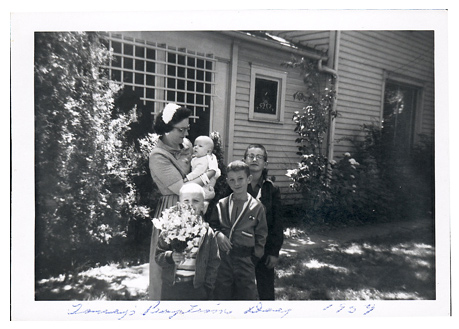Was Jesus a Jedi? by Tony Cooke
Was Jesus a Jedi?
By Tony Cooke
Biblical Texts: 1 John 1:5; Acts 17:16-34; John 14:6
Introduction and Overview
Very few people in this country are unfamiliar with the term, “Jedi,” but in case you are, let me give you some background.
The first Star Wars movie came out in 1977 and was followed by two sequels:
The Empire Strikes Back (1980)
The Return of the Jedi (1983)
After many years, three prequels in the same series were released:
The Phantom Menace (1999).
Attack of the Clones (2002)
Revenge of the Sith (2005)
The story line is one of good and evil. In many ways, it is similar to the old-time, medieval romances.
- A tale of knights and chivalry
- A princess being rescued
- Battles with dragons and monsters
- Epic wars
- Imaginative fantasy and superstition
In King Arthur’s saga, you had Merlin the Magician, as well as the Knights of the Round Table. In Star Wars, you have Obi Wan Kenobi, Yoda, and Luke Skywalker. They are “Jedi Knights,” and they are a combination of Merlin (with his connection to supernatural powers) and the Knights (with their bravery in battle).
The Ewoks, furry little forest creatures, are somewhat reminiscent of Robin Hood’s Merry Men.
There is the storming of what seemed to be the impenetrable castle, only this time, the castle is a “Death Star” in outer space.
There are even sword fights, although these swords are made of laser rather than steel.
The Pervasive Influence of Star Wars
Shortly before the release of Phantom Menace, there was a survey of 16,000 15-34 year olds in which they were asked to identify their hero. The results were:
1. Luke Skywalker
2. Jesus Christ
3. Michael Jordan
4. Martin Luther King, Jr.
The significance of the first Star Wars movies was such that President Reagan borrowed terminology from the movie during a critical time in our Nation. In a speech delivered on March 8, 1983, President Reagan referred to the Soviet Union as “an evil empire.” Two weeks after his speech, the President announced his Strategic Defense Initiative, involving a proposed plan whereby the United States would be able to shoot down incoming missiles. This defense system was quickly called Star Wars.
Analyzing the Movie and Its Influence
What is it that separates Star Wars from a good, old-fashioned King Arthur or Robin Hood movie?
- There are high-tech special effects that are impressive and enjoyable.
- The movie is set in outer space, not in the middle ages.
- There is a spiritual dimension to the film that is presented as “The Force.” Many of the characters in the movie dismiss the Force as an ancient, outdated, and irrelevant superstition. However, the Jedi Knights learn how to tap into this supernatural power and use it to their advantage. To do so, they must follow their instincts, trust their feelings, quiet their minds, avoid their fears, etc.
Concerned Christians have correctly pointed out the following:
- The Force of Star Wars should not be confused with the God of the Bible. Nor should it be confused with faith as it is taught in the Bible.
a. The Force is impersonal, but the God of the Bible is personal.
b. The Force has both a good side and a dark side, but the God of the Bible “…is light, and in Him is no darkness at all” (1 John 1:5). - The concepts in Star Wars are predominantly those of eastern religions and the occult. There is a strong pull from Buddhism, pantheism, New Age philosophies, and even a sprinkling of Christian symbolism.
These observations have caused some to denounce Star Wars, stating that Christians should have nothing to do with something that is worldly, ungodly, promoting religious and even occult philosophies.
Another Perspective?
While I certainly do not embrace all of the philosophies that are communicated in Star Wars, I believe that Christians can have a much more productive response than, like turtles, pulling our heads in our shells and isolating ourselves from the outside world.
I believe the response of the Church to Star Wars should be identical to Paul’s response to the false religious views he saw in Athens.
William Barclay said of the religious climate in Athens: “It was said that there were more statues of gods in Athens than in all the rest of Greece put together and that in Athens it was easier to meet a god than a man.”
Acts 17:16-34
16. Now while Paul waited for them at Athens, his spirit was provoked within him when he saw that the city was given over to idols.
17. Therefore he reasoned in the synagogue with the Jews and with the [Gentile] worshipers, and in the marketplace daily with those who happened to be there.
18. Then certain Epicurean and Stoic philosophers encountered him. And some said, “What does this babbler want to say?” Others said, “He seems to be a proclaimer of foreign gods,” because he preached to them Jesus and the resurrection.
19. And they took him and brought him to the Areopagus, saying, “May we know what this new doctrine [is] of which you speak?
20. “For you are bringing some strange things to our ears. Therefore we want to know what these things mean.”
21. For all the Athenians and the foreigners who were there spent their time in nothing else but either to tell or to hear some new thing.
22. Then Paul stood in the midst of the Areopagus and said, “Men of Athens, I perceive that in all things you are very religious;
23. “for as I was passing through and considering the objects of your worship, I even found an altar with this inscription: TO THE UNKNOWN GOD. Therefore, the One whom you worship without knowing, Him I proclaim to you:
24. “God, who made the world and everything in it, since He is Lord of heaven and earth, does not dwell in temples made with hands.
25. “Nor is He worshiped with men’s hands, as though He needed anything, since He gives to all life, breath, and all things.
26. “And He has made from one blood every nation of men to dwell on all the face of the earth, and has determined their preappointed times and the boundaries of their dwellings,
27. “so that they should seek the Lord, in the hope that they might grope for Him and find Him, though He is not far from each one of us;
28. “for in Him we live and move and have our being, as also some of your own poets have said, ‘For we are also His offspring.’
29. “Therefore, since we are the offspring of God, we ought not to think that the Divine Nature is like gold or silver or stone, something shaped by art and man’s devising.
30. “Truly, these times of ignorance God overlooked, but now commands all men everywhere to repent,
31. “because He has appointed a day on which He will judge the world in righteousness by the Man whom He has ordained. He has given assurance of this to all by raising Him from the dead.”
32. And when they heard of the resurrection of the dead, some mocked, while others said, “We will hear you again on this [matter.”]
33. So Paul departed from among them.
34. However, some men joined him and believed, among them Dionysius the Areopagite, a woman named Damaris, and others with them.
Consider what happened here:
1. Paul saw people in Athens searching for an answer. He saw empty people searching for something that would satisfy them, something that would genuinely meet their needs, and something that would truly answer the cry of their heart.
2. Paul found a point of common ground with these people. He saw that one of their many altars was “unoccupied,” that there was no statue behind the altar… only an inscription that said, “To the Unknown God.” Paul saw this as an opportunity to introduce them to the God they did not know, and the God he did know.
3. Paul did not attack and denounce their idolatry. Instead, he found something in their belief system that served as an entrance, an open door for the Gospel. He did not compromise the truth of God’s Word, but he found a way to present the Word of God to them in the framework of their existing mentality. In essence, Paul used their system, in spite of its flaws, to point them to the true God.
One reason I believe that people are drawn to Star Wars is that people have a hunger for the God they don’t know (just like the Athenians did). They crave supernatural reality.
They may have never seen genuine Christian spirituality. Perhaps all they’ve seen is dead religion and dead churches, but have never seen the true power of God in demonstration.
I believe that Star Wars asks the right questions; it just doesn’t have the right answers.
The Producer Speaks
In an interview with Time Magazine, George Lucas (the Producer of the Star Wars movies) said the following:
“I put the Force into the movie in order to try to awaken a certain kind of spirituality in young people – more a belief in God than a belief in any particular religious system. I wanted to make it so that young people would begin to ask questions about the mystery. Not having enough interest in the mysteries of life to ask the question, ‘Is there a God or is there not a God?’ – that is for me the worst thing that can happen. I think you should have an opinion about that. Or you should be saying, ‘I’m looking. I’m very curious about this, and I am going to continue to look until I can find an answer, and if I can’t find an answer, then I’ll die trying.’”
Lucas admitted that “…he is in that searching category, that he believes in a God but does not know who that God is.”
Lucas expresses his belief that one religion “is as good as another,” and directly states: “The conclusion I’ve come to is that all religions are true.” (Reported by Albert Mohler Jr. in World Magazine, “Faith vs. the Force,” May 22, 1999).
In an article entitled, “Seduced by the Dark Side,” Dr. Tom Snyder said:
“It’s really downright confounding how a man as smart as George Lucas can make the stupid statement that ‘all religions are true.’ They can’t possibly all be true.
…Judaism, Islam, Buddhism, Hinduism, and all the other non-Christian religions disagree ENTIRELY with the New Testament’s view of God and Jesus Christ, and with the historic Christian faith. To pretend otherwise is not only just wishful thinking, it’s a big fat lie.” (From Movieguide / June A 1999).
Finding The Real Answer
Stop and think about it. Jesus did not say, “I am one of many ways.” He said, “I am the way, the truth, and the life. No man comes to the Father but through me” (John 14:6).
When Jesus was facing the prospect of Calvary, He prayed, “Father, if there be any other way, let this cup pass from me.” He didn’t get up from that prayer and run away from the Cross. He didn’t abandon God’s plan for man’s redemption and say, “May the Force be with you.”
- Mankind’s need was not be get connected with some universal, cosmic, impersonal force.
- Mankind’s need was to have sin—that which separates man from God—taken out of the way.
- Mankind’s need was to be brought into relationship with a personal Heavenly Father. Jesus accomplished this through His death on the Cross, through the shedding of His blood, and through His resurrection.
I believe the best thing the Church can do is to use movies such as Star Wars to engage people and direct them to the One True God.
Shortly after Star Wars first came out, I was a freshman at Butler University. I used that movie to lead another student (a real skeptic) to the Lord. I found that the mystical emphasis of the movie really spoke to the spiritual hunger that he had on the inside. I explained that the Force wasn’t real, but it was a philosophical attempt to answer the true spiritual hunger that people have in their heart.
The Father, the Son, and the Holy Spirit are the true realities that man’s empty heart yearns for.
Our God is Personal, and there is no dark side in Him.
Was Jesus a Jedi?
No. Jedi is a myth.
Jesus is a reality.
Jesus wasn’t trying to tap into some universal force. He was (and is) the Creator of the Universe and all of its laws.
He didn’t use mind control to influence people. He spoke the truth and allowed people to accept or reject.
He turned water into wine.
He walked on the water.
He calmed the storms.
He multiplied food.
He healed the sick.
He cleansed the lepers.
He raised the dead.
He bore sin of humanity.
He conquered death, hell, and the grave.
He rose triumphantly and is alive forevermore.
The dilemma of the first three movies is that of an evil empire that needs to be defeated. The focus of the second set of movies is on the evil within. In other words, how does a cute and seemingly innocent young boy named Annakin Skywalker become the sinister Darth Vader? How does one with so much potential begin his journey down the dark side?
Really, this is the story of the human race.
The hunger and the questions raised are universal. But the answer to these questions will not be seen on the big screen or on the videos.
- The true answers will only be found in God’s Word, the Bible.
- The answer will not be found in an impersonal force, but in a personal God.
- The answer is not found in following your instincts, but in following the Holy Spirit.
- The answer is not found in trusting your feelings, but by trusting in God.
- The answer is not found in emptying your mind, but in filling your mind with the truth of God’s Word.
Conclusion
If you just want to go and enjoy the special effects and see the film for entertainment value, that is fine. Enjoy the movie.
But if you want to look deeper and see the “religious stew” that is assembled, please realize that a false view (“all religions are true”) underlies the film. This confusion reflects a confused society that is like the Athenians of old. Embracing a multiplicity of false gods while remaining ignorant of the one true God.
Realize that the spiritual hunger that causes people to be drawn to Star Wars is legitimate, but the answer to that spiritual hunger will never be found on the Big Screen. It will only be found in the Big Book!
To Christians, I recommend that instead of denouncing the movie because it violates your theology, use the movie as a touch-point for people who identify with its search, but take them a step farther and show them the truth that is only found in Jesus Christ.

 John F. Kennedy is a great figure in American history, and is well-known as our thirty-fifth president. After graduating from Harvard in 1940, he entered the Navy and was put in charge of a U.S. Navy Torpedo Boat, PT-109, in the Pacific. When he and his crew were on a night patrol in August of 1943, their boat was rammed by the Japanese destroyer, Amagiri. Kennedy (who had been injured himself) towed a more seriously wounded man as he led the survivors to safety by swimming to a nearby island. Five difficult days afterward they were rescued.
John F. Kennedy is a great figure in American history, and is well-known as our thirty-fifth president. After graduating from Harvard in 1940, he entered the Navy and was put in charge of a U.S. Navy Torpedo Boat, PT-109, in the Pacific. When he and his crew were on a night patrol in August of 1943, their boat was rammed by the Japanese destroyer, Amagiri. Kennedy (who had been injured himself) towed a more seriously wounded man as he led the survivors to safety by swimming to a nearby island. Five difficult days afterward they were rescued.
 There wasn’t anyone who seemed to be better “kingly material” than Saul. Scripture tells us, “…There was not a more handsome person than he among the children of Israel. From his shoulders upward he was taller than any of the people” (1 Samuel 9:2).
There wasn’t anyone who seemed to be better “kingly material” than Saul. Scripture tells us, “…There was not a more handsome person than he among the children of Israel. From his shoulders upward he was taller than any of the people” (1 Samuel 9:2). In her youth, mom was very athletic. She played softball, tennis, and basketball competitively, and was a Physical Education major at Hanover College in Madison, Indiana. She held the record in discus there for some time. Her studies at Hanover were cut short because of Rheumatic Fever, and the doctors told her mother that she would only live for four or five more years. Mom always took pride in being strong, and even in her mid-80’s as she was recovering from injuries sustained in the car accident that took my dad’s life, she periodically would challenge her doctors to an arm-wrestling match.
In her youth, mom was very athletic. She played softball, tennis, and basketball competitively, and was a Physical Education major at Hanover College in Madison, Indiana. She held the record in discus there for some time. Her studies at Hanover were cut short because of Rheumatic Fever, and the doctors told her mother that she would only live for four or five more years. Mom always took pride in being strong, and even in her mid-80’s as she was recovering from injuries sustained in the car accident that took my dad’s life, she periodically would challenge her doctors to an arm-wrestling match. If you are my age or a bit older, you may remember the hysteria surrounding the Beatles when they first became popular. In addition to “Let it Be” and “I Want to Hold Your Hand,” you may recall teenybopper fans who were beside themselves, screaming, crying, and swooning in their presence.
If you are my age or a bit older, you may remember the hysteria surrounding the Beatles when they first became popular. In addition to “Let it Be” and “I Want to Hold Your Hand,” you may recall teenybopper fans who were beside themselves, screaming, crying, and swooning in their presence. Before addressing this, it is vital to define our terms scripturally. The words “repent” and “repentance” do not mean that we anxiously wallow in guilt, hashing and re-hashing our failures, or that we walk perpetually in sin-consciousness. Here is what some of the most respected Greek scholars have to say about the Greek word for repentance:
Before addressing this, it is vital to define our terms scripturally. The words “repent” and “repentance” do not mean that we anxiously wallow in guilt, hashing and re-hashing our failures, or that we walk perpetually in sin-consciousness. Here is what some of the most respected Greek scholars have to say about the Greek word for repentance:  "God’s work done in God’s way will never lack God’s supply."
"God’s work done in God’s way will never lack God’s supply." The Apostle Paul used athletic imagery on occasion to emphasize certain aspects of the Christian life and of ministry work. I’ve enjoyed seeing the many parallels that exist when it comes to those who excel and become true champions in their given fields, whether it’s in the natural arena of sports or the spiritual field of ministry and working for God.
The Apostle Paul used athletic imagery on occasion to emphasize certain aspects of the Christian life and of ministry work. I’ve enjoyed seeing the many parallels that exist when it comes to those who excel and become true champions in their given fields, whether it’s in the natural arena of sports or the spiritual field of ministry and working for God. As I travel, I’m hearing more and more thought that is circulating in the Body of Christ regarding an “understanding” of grace that seems to be facilitating and promoting a sense of irresponsibility in people. Some applications of this would include:
As I travel, I’m hearing more and more thought that is circulating in the Body of Christ regarding an “understanding” of grace that seems to be facilitating and promoting a sense of irresponsibility in people. Some applications of this would include: What do you think of when you hear the phrase, “The God of Increase?” Do you think of God simply helping you have more, or do you see Him helping you to become more and achieve more? God is vitally interested in developing you as a person – enabling you to become everything He wants you to be and empowering you to accomplish the things He wants you to accomplish.
What do you think of when you hear the phrase, “The God of Increase?” Do you think of God simply helping you have more, or do you see Him helping you to become more and achieve more? God is vitally interested in developing you as a person – enabling you to become everything He wants you to be and empowering you to accomplish the things He wants you to accomplish. Every book of the New Testament has something to say about how we are supposed to get along with other people. Every single NT book has at least one (and some have several) verses about getting along.
Every book of the New Testament has something to say about how we are supposed to get along with other people. Every single NT book has at least one (and some have several) verses about getting along. Many Christians have a one-dimensional perspective of life. They see God existing to bless man. Period. While God certainly desires to bless humanity, that’s far from a complete perspective of God’s overall plan. Consider Romans 11:36 in these two translations:
Many Christians have a one-dimensional perspective of life. They see God existing to bless man. Period. While God certainly desires to bless humanity, that’s far from a complete perspective of God’s overall plan. Consider Romans 11:36 in these two translations: What is the first thing that came to your mind? There are many “correct” answers. Many people reading this probably thought, “God is love.” You certainly can’t argue with that. Others may have thought, “God is good.” Correct again. What about awesome, great, powerful, wonderful, or mighty? Obviously, these and many other answers would be accurate.
What is the first thing that came to your mind? There are many “correct” answers. Many people reading this probably thought, “God is love.” You certainly can’t argue with that. Others may have thought, “God is good.” Correct again. What about awesome, great, powerful, wonderful, or mighty? Obviously, these and many other answers would be accurate. The degree of fulfillment and success we experience in life is highly contingent on how well we establish and maintain our priorities. Someone said, “The main thing is to keep the main thing, the main thing.” When we accept Jesus’ Lordship over our lives, we are yielding ourselves to the authoritative influence of His Word and Spirit, and we are authorizing God to set the agenda for our lives and to establish not only our priorities, but also our pursuits.
The degree of fulfillment and success we experience in life is highly contingent on how well we establish and maintain our priorities. Someone said, “The main thing is to keep the main thing, the main thing.” When we accept Jesus’ Lordship over our lives, we are yielding ourselves to the authoritative influence of His Word and Spirit, and we are authorizing God to set the agenda for our lives and to establish not only our priorities, but also our pursuits. Proverbs 29:25 (NLT)
Proverbs 29:25 (NLT) Question: I was diagnosed with a certain disease and have been taking medicine for that condition. I have recently been learning about Divine healing. I am very excited about what I am hearing, and I am trusting God for healing. My question has to do with the medicine I am taking. Should I discontinue my medication as an act of faith? Is taking medicine a contradiction to my faith? I am a little bit confused as to what I should do along these lines.
Question: I was diagnosed with a certain disease and have been taking medicine for that condition. I have recently been learning about Divine healing. I am very excited about what I am hearing, and I am trusting God for healing. My question has to do with the medicine I am taking. Should I discontinue my medication as an act of faith? Is taking medicine a contradiction to my faith? I am a little bit confused as to what I should do along these lines. In Psalm 50, God addressed those we might call pseudo-believers. He said they were reciting His decrees and pretending to obey His covenant (verse 16, NLT), but He addressed their compromise and worldliness, saying, “You thought that I was altogether like you; but I will rebuke you, and set them in order before your eyes” (verse 21, NKJV).
In Psalm 50, God addressed those we might call pseudo-believers. He said they were reciting His decrees and pretending to obey His covenant (verse 16, NLT), but He addressed their compromise and worldliness, saying, “You thought that I was altogether like you; but I will rebuke you, and set them in order before your eyes” (verse 21, NKJV).